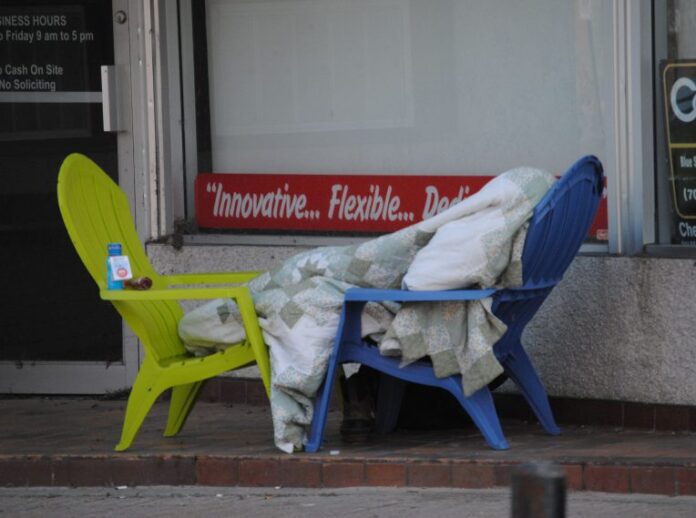The District of Nipissing Social Services Administration Board (DNSSAB) has unveiled findings from a homelessness study conducted earlier in the year.
During a 24-hour period in March, 254 people were surveyed by members of DNSSAB around the Nipissing District. In total, there were 293 people identified as homeless by the board, which indicates a 62 percent increase from 2018.
“I wasn’t surprised at all,” said Mark King, Chair DNSSAB. “This information is even more valuable now during the pandemic where managing homelessness is becoming more critical.”
From those that were surveyed, 67 percent were male compared to 33 percent being female. 42 percent of people surveyed also identified as Indigenous.
“We know that there are issues in northern Ontario with respect to reserves,” King noted. “Young people are moving off reserves because there’s no opportunity, and they’re coming into the bigger centres.”
As for the reasons people are on the streets, mental health and addiction were among the most popular. Nearly three-quarters (74 percent) of the respondents identified as having substance abuse challenges, with 57 percent saying they have mental health struggles.
“We’re kind of feeling our way through this, to be honest, trying to find the right solution to a real complex problem. I believe that we’re going down the right road with the transitional housing program,” King said. A shelter on Chippewa Street has been the site of numerous additions in the past few weeks, with it being the ideal home for both a low-barrier warming shelter as well as a transitional housing unit.
The survey also asked people what social services they had utilized in the past year. 22 percent of respondents said they had been hospitalized, 56 percent said they had some sort of interaction with police while 39 percent spent at least one day in jail.
DNSSAB calculated that using those resources, homeless people in the Nipissing District used over $4.2 million in social support.
“You have to be honest about what’s going on in the situation and I think it gives the general public an understanding of what it takes to keep these things running,” King said.
DNSSAB was one of the few social services boards in Ontario to successfully run the survey without having to cancel it due to the pandemic.
The project was funded by the federal government’s Reaching Home Strategy.






